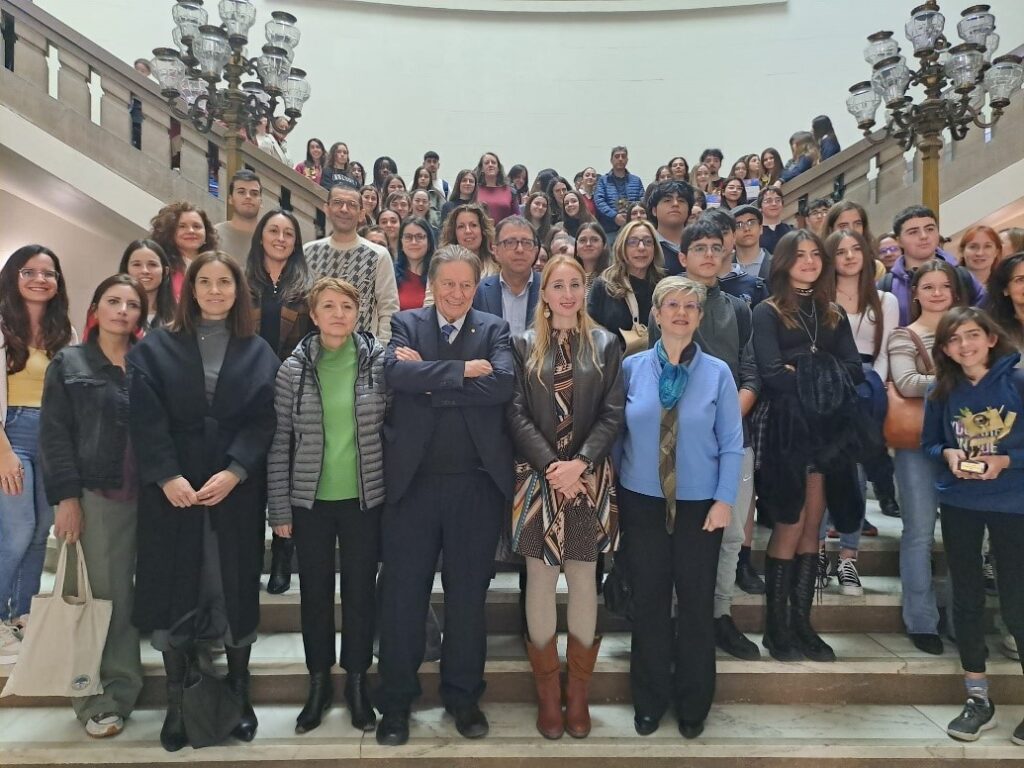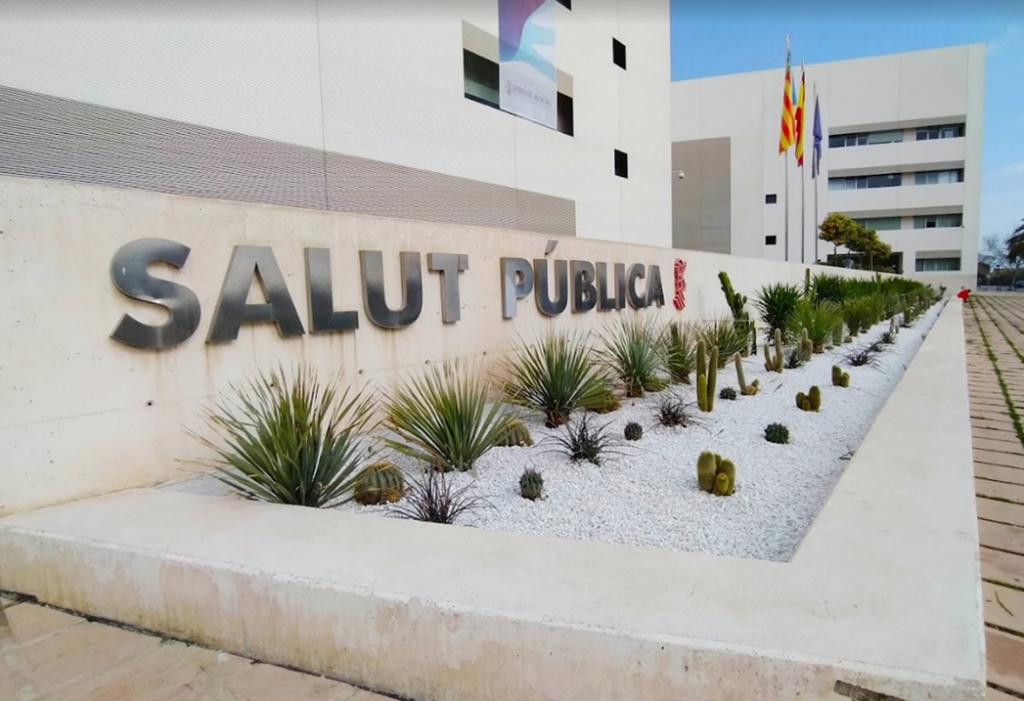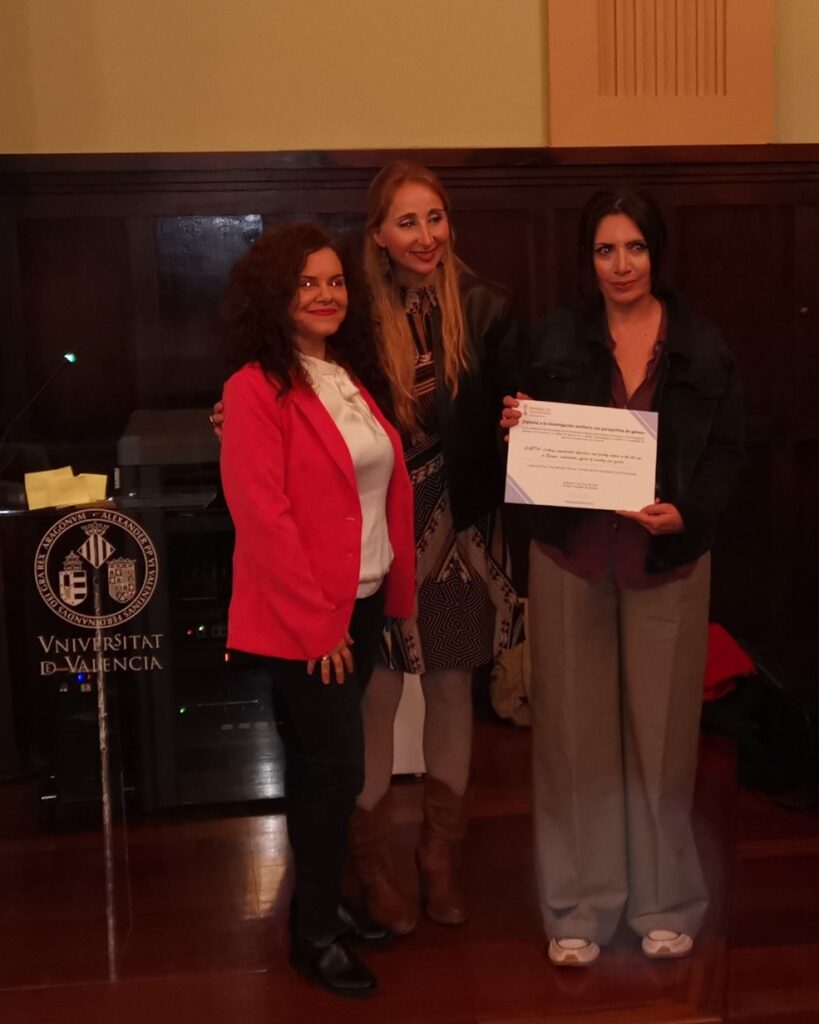
On 1 March 2024 in the Assembly Hall of the Rectorate of the University of Valencia, our group was recognised by FISABIO (Fundación para el Fomento de la Investigación Sanitaria y Biomédica de la Comunitat Valenciana) for its ongoing research in the framework of the SAETA project.
On 1 March 2024 in the Assembly Hall of the Rectorate of the University of Valencia, our group was recognised by FISABIO (Foundation for the Promotion of Health and Biomedical Research of the Valencian Community) for its ongoing research in the framework of the SAETA project. Our group maintains an active agreement with the CIPF precisely for research in biomedicine and health, respecting the gender approach.
In particular, the research that provides new evidence based on response data from more than 22,000 Europeans from the SHARE longitudinal study was highlighted. It shows that in pathologies such as myocardial infarction there is a clear relationship with frailty. Older people who are healthy in terms of absence of frailty are 13 times more protected than those who are not against the occurrence of myocardial infarction. This is, in general, without distinguishing between men and women. When we do so, when we study differentially and take into account many other variables, thus controlling for confounding explanatory factors for many other reasons... we find that frail men are more vulnerable than women to heart attack across age and country of origin. When we focus on countries, because of their different health systems, diets, social and behavioural habits, among others, we also find results of interest when designing more strategic health actions.
Lastly, the awards were collected from Mariola Penadés, Director General of Research and Innovation, Palmira Muñoz, Head of the Equality Unit of the Regional Ministry of Health, and Javier Quesada, Executive President of the Jaume I Awards. All of them in the pictures together with Trinidad Sentandreu-Mañó and Amparo Oliver who attended on behalf of our group.
Coinciding with these distinctions, the awards ceremony was held for the ‘De major vull ser com...’ contest, which rewards audiovisual initiatives to promote STEM vocations in young people in secondary school, high school and vocational training, especially women. The quality of the proposals was extraordinary, as was the collective atmosphere we experienced on a day of celebration where positivity and the desire to contribute from public education and health shone through.
Images:









